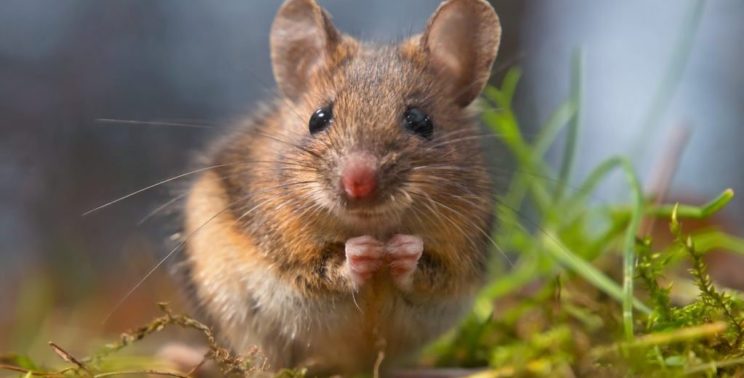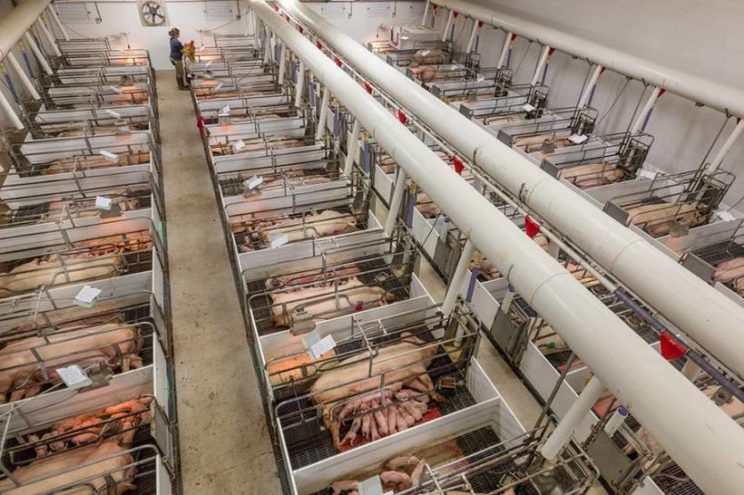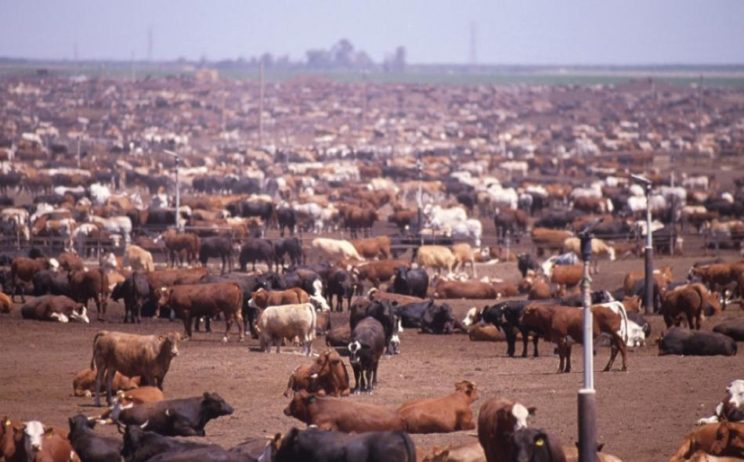
A new study which looks at the number of field deaths of wild animals in plant agriculture is being used by meat-eating apologists to claim that a plant-based diet is not more ethical than eating animals.
Writing in the Journal of Agricultural and Environmental Ethics, philosophy professors Bob Fischer, of Texas State University, and Andy Lamey, of the University of California, San Diego, note that every year, 40 million cows, 120 million pigs, and 9 billion chickens are killed and consumed each year in the U.S. While a precise number of fish is unknown because they are counted by weight, not number, the number of fish is estimated at several times higher than that of chickens.
By comparison, some estimate that as many as 7.3 billion wild animals, such as mice, are killed in plant agriculture. While that is lower than the number of animals killed for food, “Traditional veganism,” say the authors “could potentially be implicated in more animal deaths than a diet that contains free-range beef and other carefully chosen meats.” But is this fair? And is it true? It is not.
It seems that those who make these claims didn’t bother to read the actual study. First, the authors admit that the 7.3 billion figure is too high, dramatically so, and is based on “a misunderstanding of mouse population dynamics.” “Crop cultivation often has no effect on whether field animals live or die,” write Fischer and Lamey.

Second, the number of deaths doesn’t take into account who killed them (such as predators as opposed to harvesting equipment) and how they spent their lives (compared to say chickens or pigs on an intensive-confinement factory farm). Such questions, say the authors, should “seriously alter the way we think about the scope and severity of field animal mortalities.” While death is the most important factor here, even the authors admit they undermine the claim that “it’s better, on pure animal-welfare grounds, to eschew plant-based diets in favor of diets containing… free-range animals.” In short, “The numbers don’t seem to support that position.”
Third, a lot of plant agriculture is done to feed animals raised and killed for foods and meat-eating apologists who are wielding this study as a weapon against veganism ignore that eliminating an animal-based diet would reduce the number of plants that are harvested, thus reducing the number of wild animals who are killed.

Fourth, if people stopped eating animals, much of the land currently used for farmed animals and used for plants to feed farmed animals could be rewilded, providing more habitat for wild animals.
Fifth, we could potentially eliminate all wild animal deaths in plant agriculture by adopting “wildlife-friendly farming methods.” In so doing, not only would we prevent wildlife deaths, we’d also be saving water and energy, reducing our climate change footprint and thus save even more animals. These strategies include “non-lethal pest control to habitat management and even indoor farming.” Indoor farming, for example, is not only 100 times more efficient by some standards, such as water use, no animals are used and no animals are killed.
“Agriculture has taken a wide variety of forms throughout history,” write Fischer and Lamey. “Current trends would seem to raise the serious possibility that plant agriculture might someday kill very few animals—perhaps even none.”
The answer to the dilemma posed by the study then is also in the study. And despite what the meat-eating apologists would like it to be, it is not to eat animals, but to reform plant agriculture. A vegan diet using humane harvesting methods would zero out all animal deaths: those now killed to be eaten like cows, chickens, pigs, and turkeys, as well as those killed in harvesting plants, like mice. Guilt-ridden meat eaters who thought this study made their case would know this had they bothered to read it.
The study, Fischer, B. and Lamey, A. “Field Deaths in Plant Agriculture,” in the Journal of Agricultural and Environmental Ethics, 2018, is available by clicking here.
————-
Have a comment? Join the discussion by clicking here.